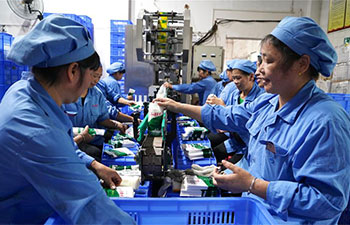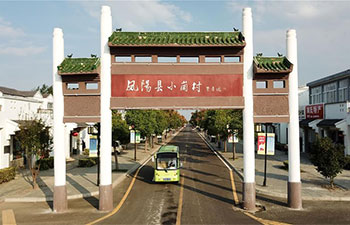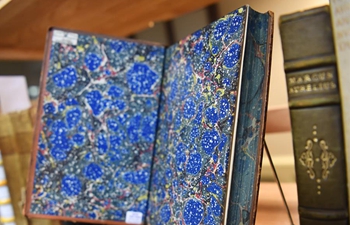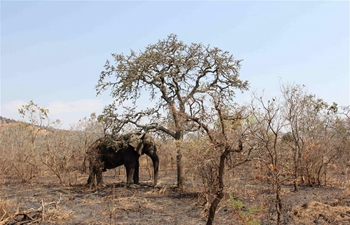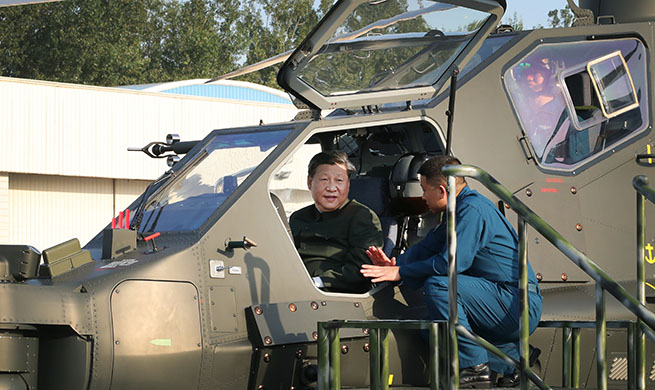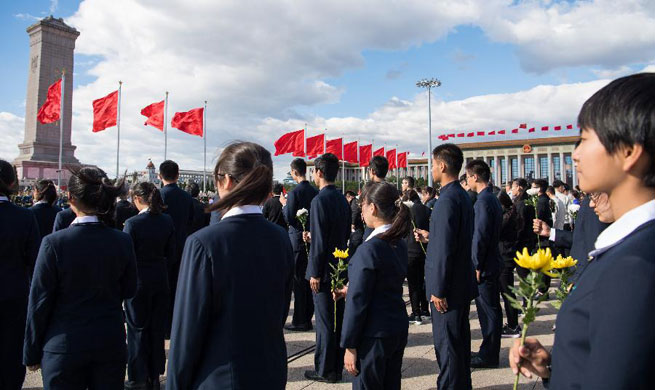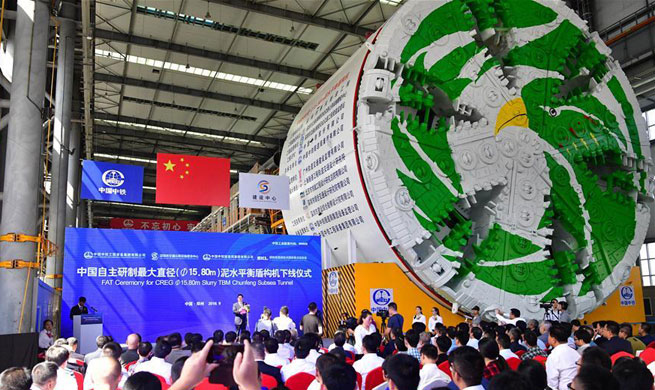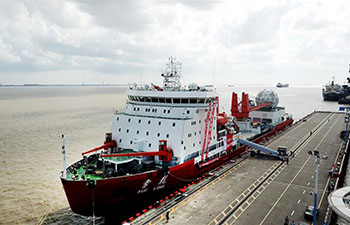by Raul Menchaca
HAVANA, Sept. 29 (Xinhua) -- Cuban President Miguel Diaz-Canel on Saturday took the chance to attract more American tourists to the Caribbean island nation when meeting with representatives from various American sectors, including the travel industry.
At the Marriott Marquis Hotel in New York where he attended the 73rd session of the UN General Assembly, the Cuban head of state introduced the opportunities for the entities dedicated to the exchanges and travel between Cuba and the United States.
In an environment described by the Cuban press as "relaxed and understanding," Diaz-Canel said that for him it was very important to meet with the sectors that favor the dialogue and relations between the two countries, both at the levels of people and government.
"That has been precisely the fundamental peace message that we have brought," he said.
Despite the recent "circumstances" that have caused a setback in these relations between Cuba and the United States, he said that Cuba will "continue to insist and maintain our will to continue the bilateral dialogue based on respect."
The presence of the U.S. travel industry in Cuba has helped boost the arrivals of people motivated by the island's culture, history and nature, as well as the academic, scientific and cultural exchanges, he said.
"Cuba is an open country to the relations with the travel agencies. We have raised the development of tourism as a priority for our country. In the last twenty years our hotel capacity has grown greatly," said the Cuban leader.
"Two decades ago, such an important tourist pole as Varadero had only three or four hotels. Today it has more than 25,000 rooms," said Diaz-Canel.
The president explained that currently there are more than 20 hotel chains and a significant number of travel agencies in Cuba, so the flow of tourists has been growing in recent periods, and last year the country saw more than 4.5 million visitors.
Diaz-Canel proposed seeing tourism as "a spiritual and emotional exchange", instead of a simple business.
"Through traveling it is easy to know better other countries and understand their people. Through tourism it is possible to share cultural influences, culture and history. Traveling fosters friendship, and it is precisely this holistic vision of tourism to which we aspire in the relations we propose to the United States," he said.
The meeting was attended by the president of the U.S. Chamber of Commerce, Thomas J. Donohue, senior executives of hotels, cruise operators, airlines, as well as lawyers, academics, advisors and consultants.
For months, Washington and Havana have been embroiled in a bitter dispute over the U.S. accusations of alleged sonic attacks against its diplomats accredited on the island.
That dispute caused a serious setback in bilateral relations, especially after the U.S. government ordered the withdrawal of almost its staff from the embassy in Havana.
The White House keeps Cuba on the second level of four possible ones in a list about countries with travel risks. Yet, despite these restrictions, more than 430,000 Americans have visited the island by September 2018, according to Cuba's official figures.
In 2017, over 619,000 Americans toured the island despite the travel alert. Also about 400,000 Cubans living in the United States visited their country of origin.
This year, the figures have decreased significantly, but experts believe that more than 400,000 arrivals of American visitors in the first nine months has served as an indicator of the rising interest for the Caribbean nation.
A study by the International Monetary Fund estimates that between 3 and 5 million Americans would visit Cuba every year if the half a century U.S. embargo were lifted.
